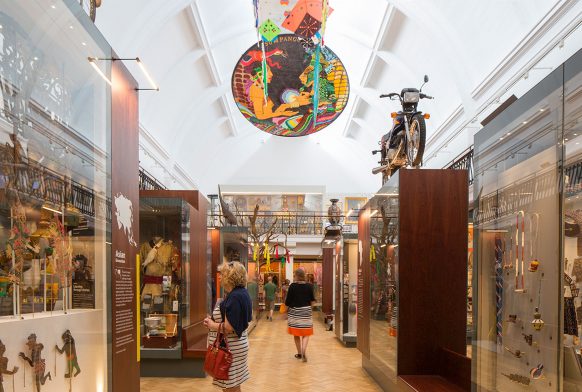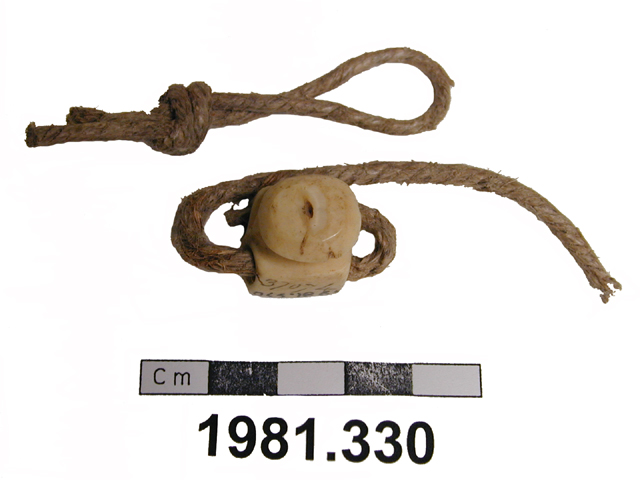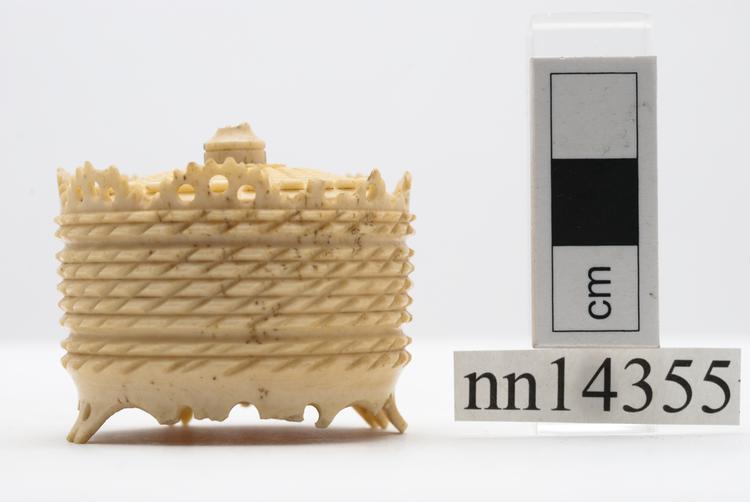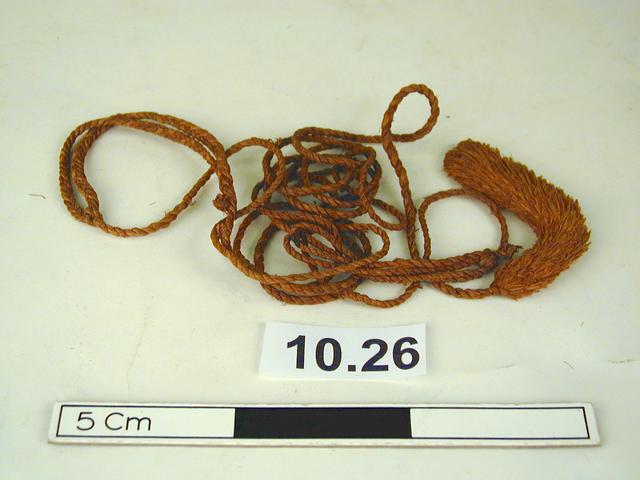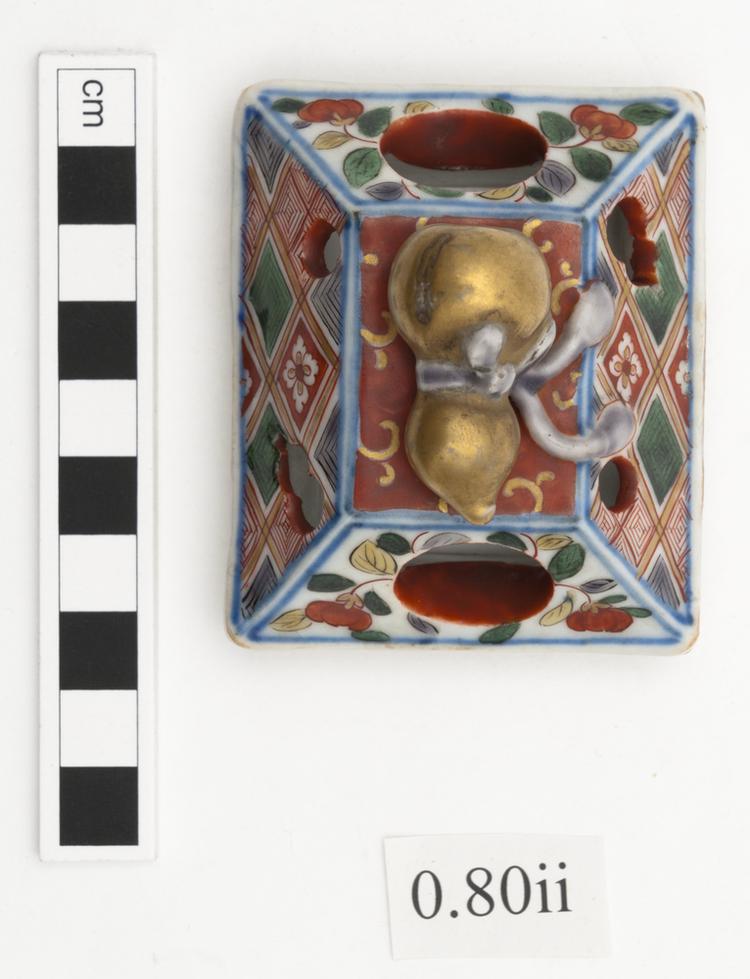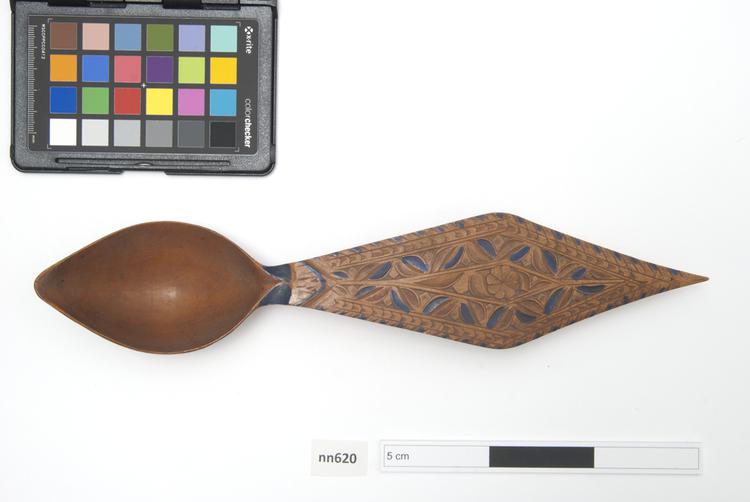
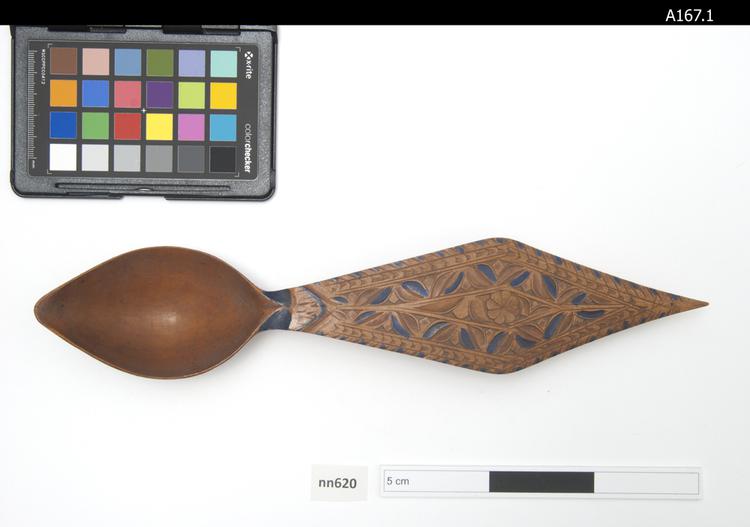
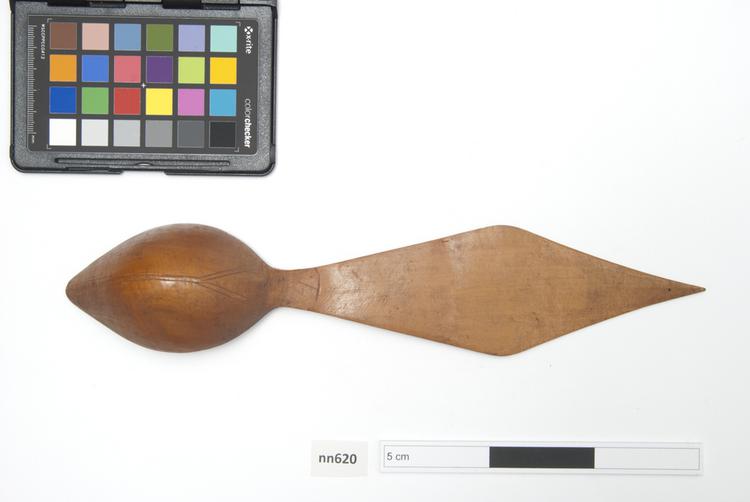
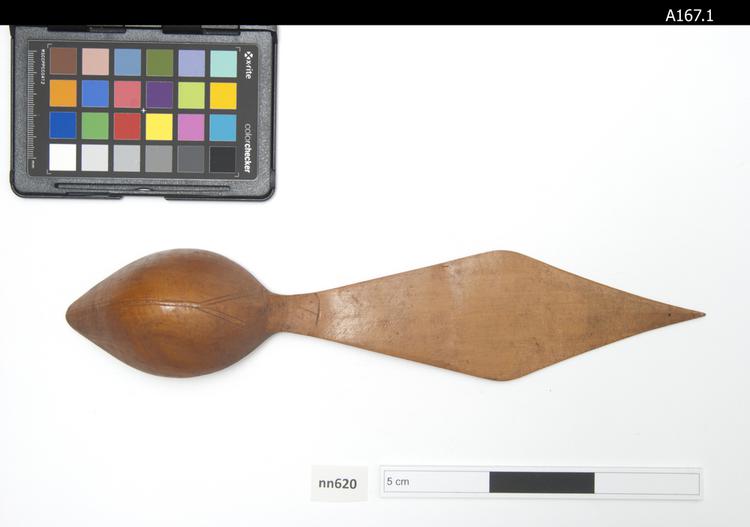
Wooden sherbet spoon (‘qashuq’) with an elaborately carved handle. The bowl is leaf-shaped and depp, and has a Y-shaped incised design on the underside. The handle is flat and diamond shaped. The upper side is carved with several decorative borders, and a central panel featuring a floral motif. Portions of the carving are coloured in blue-black. Near the tip of the panel is a very small pierced hole.
This carefully carved spoon was used for drinking sherbet. Typically sherbet would be presented in a ceramic basin with the bowl of the spoon floating on the liquid’s surface and the handle resting on the basin’s edge. A guest would drink from the spoon, then place it back in the basin for other guests to use. Spoons like this example are associated with the Iranian town of Abadah, although there is nothing to specifically link it to the town. In the nineteenth century Abadah was famous for its elaborately carved sherbet spoons (‘qashuq’) and many were collected by European travelers as they made easily transportable craft objects. Abadah spoons were carved form pear or box wood, but we do not know what wood was used in this example.



